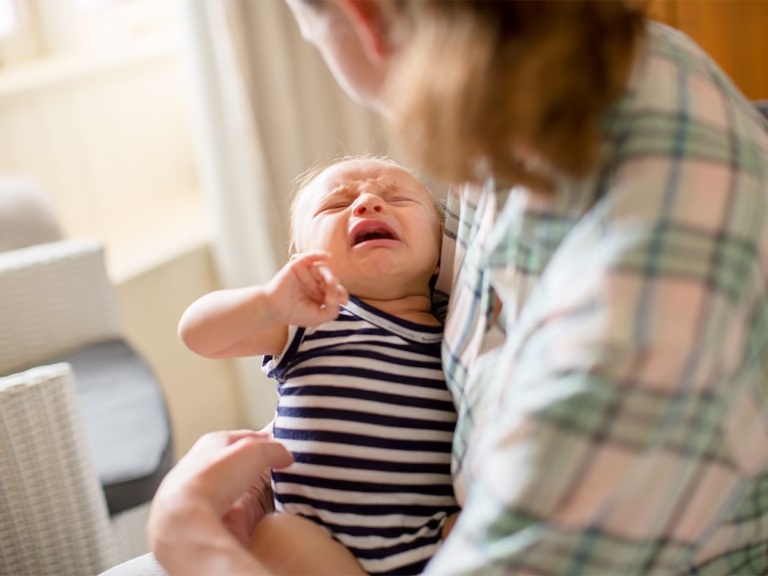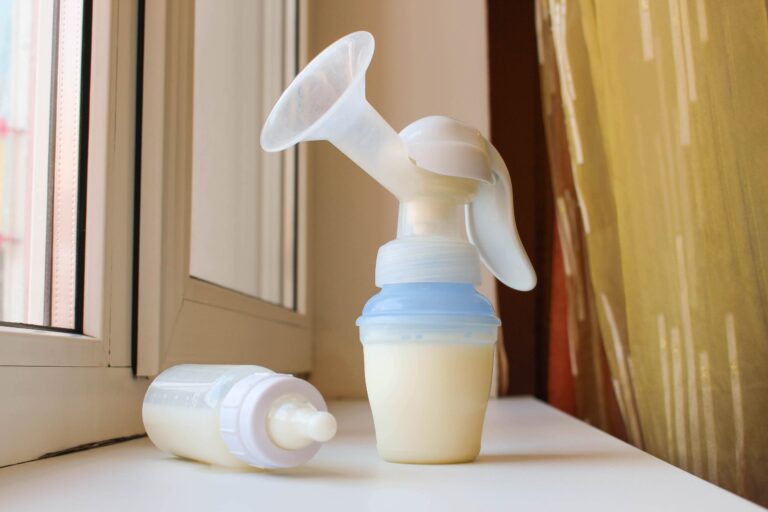Can Infant Have Ear Infection Without Fever: Unveiling Myths
Yes, infants can have an ear infection without a fever. Ear infections in babies may present with other symptoms.
Understanding the subtle signs of ear infections is crucial for parents, especially since infants cannot articulate their discomfort. Ear infections, medically known as otitis media, are a common occurrence in young children and infants. These infections can sometimes go unnoticed because they don’t always cause the classic symptom of fever that many associate with illness.
Parents should watch for non-fever indicators such as tugging at the ear, crying more than usual, trouble sleeping, or a decrease in appetite. Early detection and treatment are important to prevent complications and relieve discomfort. Pediatricians are equipped to diagnose ear infections through a physical examination, ensuring proper care for your infant’s health. With attentive care, most infants recover quickly from ear infections, even in the absence of fever.
Myth Vs Reality: Fever As A Symptom
Many people link ear infections to high temperatures. Yet, not all cases show this sign. Little ones can face ear troubles with no fever at all. They might pull at their ears or show unhappiness. These are signs you should not ignore.
Expect behaviors like poor sleep or hearing issues. They point to possible ear infections. It’s vital to notice these clues. A doctor can help, even when there is no fever present.
Spotting The Hidden Signs
Ear infections can trouble infants, even without fever. Parents should watch for non-verbal cues. Infants might pull on their ears or cry more than usual. They could also show signs of trouble hearing, like not reacting to sounds. Difficulty sleeping and loss of balance are potential indicators.
Another symptom to look for is a change in mood. A usually happy baby may become fussy or irritable. Check if they respond less to voices or appear to hear poorly. Fluid draining from the ear is a clear sign. Noticing these changes early can help in getting prompt treatment.
Ear Tugging: A Key Indicator?
Babies sometimes pull their ears for various reasons. It may be due to curiosity, teething, or feeling uncomfortable. Yet, one sign of an ear infection can include a child frequently tugging at their ears. Since babies can’t tell us they’re in pain, ear pulling should be monitored.
Parents often think ear tugging is harmless. But, if the baby shows distress, cries more, or has sleep disturbances, it might mean more. Ear infections may occur without fever, making it tricky to diagnose. It’s important to observe other ear infection symptoms, like fluids from the ear, irritability, or a lack of response to sounds.
Silent Ear Infection In Infants
Silent ear infections (otitis media with effusion) often show no symptoms. Such infections can be missed without the usual sign – fever. It means fluid is trapped behind the eardrum in a child’s middle ear.
Doctors use otoscopes to look inside the ear. The signs can be subtle. Ear fluid may be present, even without redness or swelling. It’s tricky with infants as they can’t say what’s wrong.
To diagnose silent infections, sometimes infants show behavior changes. They might pull at their ears or be fussy. Parents should notice if their child reacts to sounds less than usual.
Home Checks: Expert Advice
Parents can check for ear infections by observing their child. Look for tugging at the ears, excessive crying, or a change in sleep patterns. Babies might also have trouble balancing or show a lack of appetite. These signs suggest a visit to the doctor may be needed.
Ear redness, fluid discharge, or odor also indicate infection. Never insert anything into the child’s ear. This can cause harm and push the infection deeper.
| Sign | Possible Indication |
|---|---|
| Ear Tugging | Infection or discomfort |
| Excessive Crying | Pain or discomfort |
| Sleep Trouble | Ear pain affecting rest |
Some conditions mean a doctor’s visit is necessary. With any ear drainage, swelling around the ear, or if the child is very young, professional care is important. Keeping the child comfortable and monitoring symptoms is key.
When To Visit The Doctor
Ear infections can trouble infants with pain and discomfort. Not all ear infections cause fever. Look for your infant tugging at their ears or being unusually fussy. These signs may suggest an ear infection. Notice any changes in sleeping or hearing? These too could point to a problem.
Antibiotics can help with bacterial infections. Yet, not every ear infection needs them. Your pediatrician can decide. Remember, viral infections won’t respond to antibiotics.
Is your infant showing these symptoms? It’s time for a doctor’s visit. Schedule an appointment to get the right treatment.
Prevention And Long-term Care
Reducing the risk of ear infections starts with proper hygiene. Keep babies’ hands clean to prevent spread of germs. Breastfed infants may have lower risk, as antibodies in the milk offer protection.
Ensure all vaccinations are up-to-date, including flu and pneumococcal shots. Exposure to tobacco smoke increases infection risk, so maintain a smoke-free environment. Minimize use of pacifiers as they can harbor bacteria if not regularly sanitized.
Long-term effects of recurrent ear infections can include hearing difficulties and speech delays. Regular check-ups with a pediatrician help monitor ear health and development. Quick treatment for any infections aids in preventing complications.
Frequently Asked Questions Of Can Infant Have Ear Infection Without Fever
How Do I Know If My Baby Has An Ear Infection Without Fever?
Look for these signs your baby may have an ear infection without fever: persistent crying, irritability, trouble sleeping, and pulling at ears.
What Is Silent Ear Infection In Babies?
A silent ear infection in babies is an ear infection without typical symptoms, like pain or fever, making it harder to detect.
Can I Check My Baby For Ear Infection?
Yes, you can check your baby for an ear infection by looking for symptoms like tugging at ears, crying, irritability, or trouble sleeping. Consult a pediatrician for a proper diagnosis.
Conclusion
Babies can suffer from ear infections without fever as a symptom. It’s crucial for caregivers to note other signs like fussiness or ear tugging. Early detection and treatment ensure your infant’s comfort and health. Always consult a pediatrician with any concerns regarding ear infections in your little one.




